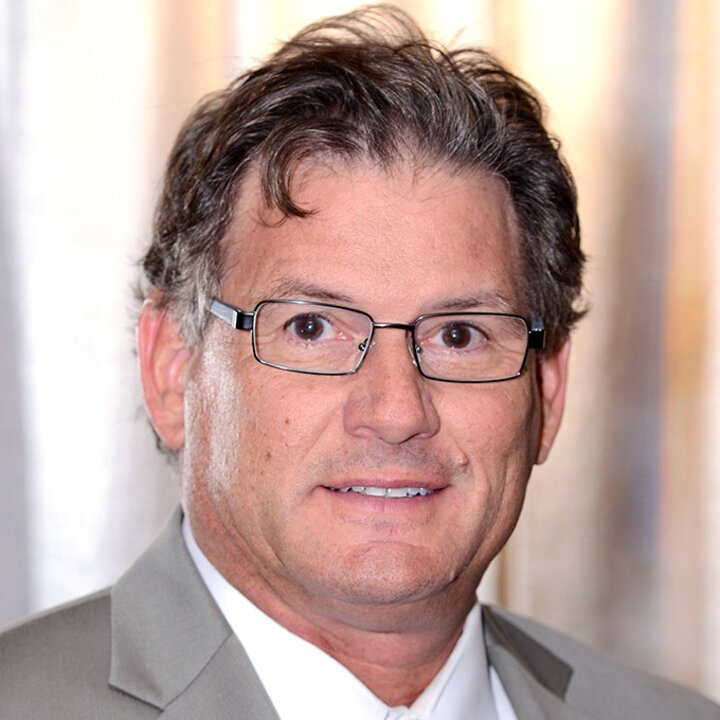
Steven Barlow
Corwin Moore Professor
Department of Special Education and Communication Disorders University of Nebraska-Lincoln
Contact
- Address
-
BKC 233
Lincoln NE 68583-0738 - Phone
-
402-472-6395 On-campus 2-6395
-
steven.barlow@unl.edu
- Website
-
Communication Neuroscience Laboratories
CV: Download
Steven Barlow joined the Department of Special Education and Communication Disorders in 2014 as the Corwin Moore Professor after working at the University of Kansas for more than 13 years. He served as chair of the Department of Special Education and Communication Disorders from July 2021 through December 2022.
His research is collaborative in nature and focuses on the neurobiology of somatosensory and motor systems in premature infants. Steven developed the NTrainer System, which was approved by the Food and Drug Administration in 2008, and uses its innovative pulsed cutaneous stimulation during critical periods of development to facilitate oral feeding skills, overall brain development and long-term behavioral and learning outcomes.
Most recently, Steven was awarded a $2.8 million grant from the National Institutes of Health Eunice Kennedy Shriver National Institute of Child Health and Human Development. He will use the grant funding to lead a five-year, multi-site study that will examine 180 preterm infants born between 24-27 weeks at neonatal intensive care units at CHI Health St. Elizabeth in Lincoln, Tufts Medical Center in Boston, and Santa Clara Valley Medical Center in San Jose, California. This new study will be the first of its kind to explore the ability of the NTrainer’s stimulation to trigger positive genetic changes as related to six target genes in the infants.
A variant of Steven's NTrainer therapy approach using dynamic somatosensory fields is now being tested as an agent of brain plasticity in adults who have sustained cerebrovascular stroke. New study lines at UNL will focus on neural encoding of velocity and direction of saltatory somatosensory inputs using a new medical device developed in the Steven's lab, known as the TAC-Cell Array or ‘Galileo’. The main objectives are to improve neurodiagnostics and neurotherapeutics to improve the well-being of the affected individual across the lifespan, including improved speech and swallowing motor control, and when involved, rehabilitate sensorimotor control of distal extremities (hand, object manipulation).
Education
Ph.D., Speech Physiology, University of Wisconsin, 1984
M.S., Speech-Hearing Sciences, University of Wisconsin, 1980
B.S., Speech Pathology, University of Wisconsin, 1976
Areas of Expertise:
- Neurobiology of preterm infant, feeding, gene expression
- Experience- and activity-dependent plasticity across the lifespan
- Somatosensory and motor physiology
- Medical device neurotherapeutics
Honors and Recognition
- 2020, iidex Invention-Innovation-Design Exposition Bronze Award
- 2019, Laurels Recognition for Research, University of Nebraska
- 2019, Callier Prize for Outstanding Scientific Achievement, Callier Center, University of Texas at Dallas
- 2016, Research Faculty, Society for Pediatric Research
- 2015, Honors Award for Distinguished Scientific Research Career and Service, American Speech-Language-Hearing Association
- 2015, Meritorious Poster Award, American Speech-Language-Hearing Association
- 2012, Louise Byrd Graduate Research Training Award, University of Kansas
- 2012, Leading Light Research Award, University of Kansas
- 2011, Founder, Neonatal Feeding Club, American Pediatric Society
- 2009, Dolph C. Simons, Sr. Award in the Biomedical Sciences
- 2009, Editor's and Publisher Award, Journal Neonatal Nursing
- 2009, Fellow Award, American Speech-Language-Hearing Association
- 2008, Best Scientific Article, Physiological Measurement
- 2003, 4th William R. Zemlin Memorial Award for Excellence in Speech Science Research, American Speech-Language-Hearing Association
- 2002, Excellence in Teaching Award, University of Kansas
- 1985, James M. Keck Faculty Development Award, Creighton University
Experience
- 2014-present, Corwin Moore Professor, University of Nebraska-Lincoln
- 2015-present, Associate Director, Center for Brain, Biology and Behavior, University of Nebraska-Lincoln
- 2014-present, Director, Communication Neuroscience Laboratories, University of Nebraska-Lincoln
- 2014-present, Professor (Affiliate), Department of Biological Systems Engineering, University of Nebraska-Lincoln
- 2018-present, Director, Functional Near Infrared Spectroscopy Laboratory at CB3, University of Nebraska-Lincoln
- 2021-22, Chair, Department of Special Education and Communication Disorders, University of Nebraska-Lincoln
- 2004-13, Professor, Department of Speech-Language-Hearing: Sciences & Disorders, University of Kansas
- 2000-04, Professor and Chair, Department of Speech-Language-Hearing: Sciences & Disorders, University of Kansas
- 2000-13, Professor, Programs in Neuroscience, Human Biology, and Bioengineering, University of Kansas
- 1999-2000, Professor and Chair, Communication Sciences and Disorders, Syracuse University
- 1993-99, Professor, Department of Speech and Hearing Sciences, Indiana University
- 1990-93, Associate Professor, Department of Speech and Hearing Sciences, Indiana University
- 1987-89, Coordinator and Staff Scientist, Speech-Orofacial Physiology Lab, Boys Town National Institute, Omaha, Nebraska
- 1987-89, Associate Professor, Department of Otolaryngology, Creighton University School of Medicine
- 1984-87, Co-Coordinator and Research Associate, Speech-Orofacial Physiology Lab, Boys Town National Institute, Omaha, Nebraska
- 1984-86, Assistant Professor, Department of Otolaryngology, Creighton University School of Medicine
Memberships
- Society for Neuroscience
- Acoustical Society of America
- Association for Research in Otolaryngology
- National Head Injury Foundation
- Pediatric Academic Society (Society for Pediatric Research)
- American Clinical Neurophysiology Society
- American Speech-Language-Hearing Association
- Academy of Neurologic Communication Disorders and Sciences
- American Academy of Neurology
- International Society for Advancement of Clinical MEG